Zbigniew Rybczyński (born 1949) is a director, cinematographer, screenwriter, creator of experimental animated films and multimedia artist. He is renowned for his innovative audiovisual techniques and for his pioneering experimentation in the field of new image technology.
Rybczyński was born in Łódź, Poland. He grew up in Warsaw, where he attended a secondary-level art school and then worked briefly at the Studio Miniatur Filmowych (1968-1969). He studied at the Cinematography Department of the Łódź Film School (1969-1973); his thesis films were Take Five and Plamuz. During his studies, he became a founding member of the Film Form Workshop, the most important Polish neo-avantgarde group. He has also honed his film-making skills working as a cameraman for directors like Andrzej Barański, Piotr Andrejew, Wojciech Wiszniewski and Filip Bajon on shorts, documentaries and educational films, and on Grzegorz Królikiewicz’s full-lenght The Dancing Hawk.
From 1973 to 1980 Rybczyński was making his own films at the Se-Ma-For Studio in Łódź. He established the Dr Stanzl special effects studio in Vienna for the Austrian public TV station ORF, and worked there from 1977 to 1980. The first works he made in the US were the short experimental videos The Day Before and The Discreet Charm of the Diplomacy, both made in 1984 on a commission from NBC TV’s The New Show. In 1985 he launched his own studio – ZBIG VISION – in New York, which he subsequently outfitted with the latest video, computer and HDTV technology. It was in this studio that he made his most important American films, including Steps (1987), The Fourth Dimension (1988), The Orchestra (1990), Manhattan (1991) and Kafka (1992).
Between 1984 and 1989 he made over 30 music videos for such artists as Mick Jagger, Yoko Ono, Lou Read, Simple Minds, The Art of Noise, Chuck Mangione, Pet Shop Boys, Lady Punk, The Alan Parsons Project, Supertramp and Rush. One of them, Imagine (1986), made for John Lennon’s composition – was the first music video ever made using high-definition technology.
In March 2009 Rybczyński returned to Poland, taking up residence in Wrocław, where he is currently setting up a studio he’s designed himself – the Wrocław Visual Technology Studio – at the site of the city’s historic Feature Film Studio.
Rybczyński was a professor at the Academy of Media Arts in Cologne (1998-2001), and has also taught at many other art and film schools, including the Łódź Film School, Columbia University in New York and Yoshiba University of Art and Design in Tokyo.
Zbigniew Rybczyński has won numerous prestigious awards at international film festivals including Oberhausen (1981), Tampere (1982), Kraków (1981), and the Golden Gate Award at the San Francisco International Film Festival (1993). The Oscar he won in 1983 for his film Tango was the first ever awarded to a Polish artist. He has also recieved three MTV Video Music Awards, three American Video Awards and three Monitor Awards (1984-1987), an MTV Video Vanguard Award for being visionary in the field of music video (1985-86), a Billboard Music Video Award (1986), a Silver Lion at the Cannes Advertising Film Cinema Festival, Tokyo-Montreux (1990 and 1992). In 2010 he recieved a Lifetime Achievement Award for his contributions to the development of international cinematic art at the Batumi International Art-House Film Festival (BIAFF) in Georgia.
Rybczyński’s first solo exhibition, „A Treatise on the Visual Image”, shown in 2009 at Art Stations in Poznań, the WRO Art Center in Wrocław and the Center of Contemporary Art Znaki Czasu in Toruń – focused attention on his unique artistic and scientific achievements, presenting his work in the context not only of film, but of contemporary art. In 2011-2012 his works were presented in the exhibition The State of Image. Zbigniew Rybczyński and Gabor Body at the Academy of Arts in Berlin and at the ZKM in Karlsruhe.
Related links: www.zbigvision.com,

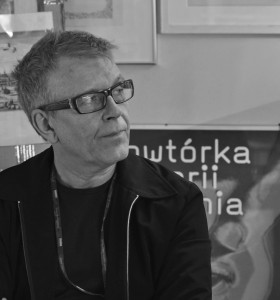
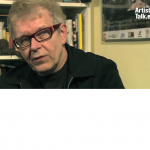
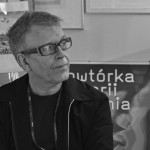
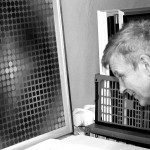
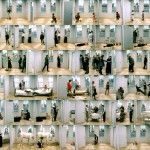
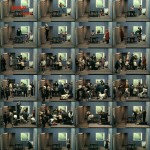
 Copyright © 2025 ARTISTTALK. All Rights Reserved.
Copyright © 2025 ARTISTTALK. All Rights Reserved.